Saturday, November 4, 2023
8:30 a.m. to 4:00 p.m.
Little Shop of Physics, Colorado State University
Natural and Environmental Sciences Building (NESB) 3rd Floor
1231 Libby Coy Way, Fort Collins, CO 80521
Because of the upcoming National Science Teachers Association meeting on March 20-23, 2024 in Denver, we have decided to do our spring meeting early! Participants in this meeting will have the opportunity to win a ticket to to NSTA in Denver, a nearly $500 value! This meeting is open to all levels of physics educators and students!
Meeting Schedule
Download the full schedule (PDF).
|
Time |
Event |
Presenter |
Room |
|
8:30-9:00 a.m. |
Registration and Coffee |
A-302/304 |
|
|
9:00-9:45 a.m. |
What is Mass – Really? From Democritus to Higgs |
Bob Wilson, Colorado State University |
B-302 |
|
9:45-10:15 a.m. |
Cosmology and High Energy Physics |
Joshua Berger, Colorado State University |
B-302 |
|
10:15-10:30 a.m. |
Break |
||
|
10:30-11:00 a.m. |
Neutrinos (slides) |
Julia Gehrlein, Colorado State University |
B-302 |
|
11:00-11:30 a.m. |
Iron Chef Physics (slides) |
Cecilia Dauer, Little Shop of Physics |
B-322 |
|
11:30-12:00 a.m. |
Business meeting and drawing for NSTA prize |
Cherie Bornhorst, Section President |
|
|
12:00-1:00 p.m. |
Lunch and explore Little Shop of Physics Engagement Spaces |
A-302/304, B-323/325/329 |
|
|
1:00-1:45 p.m. |
Denver Area Physics Teachers Circular Motion Workshop |
Cherie Bornhorst and Matt Leach, DAPT |
B-322 |
|
1:45-2:30 p.m. |
QuarkNet: Bringing 21st Century Physics Into the Classroom (slides and links) |
Shane Wood, QuarkNet |
B-302 |
|
2:30-2:45 p.m. |
Break |
||
|
2:45-3:15 p.m. |
Harry Potter Physics (slides) |
Carolyn Crapo, Grandview High School |
B-302 |
|
3:15-4:00 p.m. |
Building Bridges to Interdisciplinary Collaboration (slides) |
Nadene Klein and Joe Schneiderwind, DC Oakes High School |
B-302 |
|
4:00 p.m. |
Adjourn; social gathering at Black Bottle Brewery |
Featured Presentations
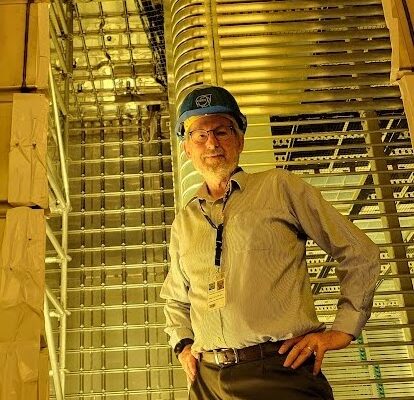
What is Mass – Really? From Democritus to Higgs
by Professor Bob Wilson, Colorado State University
In this presentation, I will explore the historical development of the concept of mass. Beginning with the familiar classical physics notions of substance and resistance to motion, moving on to the fungibility of mass and energy in Einsteinian relatively, and ending with the quantum picture of elementary particles gaining mass through interactions with an all-pervading Higgs field.
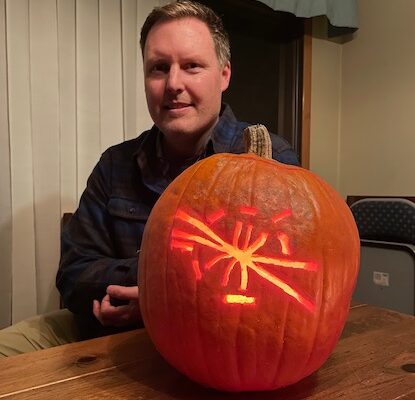
QuarkNet: Bringing 21st Century Physics Into the Classroom
By Shane Wood, QuarkNet
Students who complete an introductory physics course may be under the impression that physics somehow “stopped” in the late 19th or early 20th century. Of course this idea could not be further from the truth, as physicists today continue to work on addressing an ever-growing list of unsolved questions: Where has all the antimatter gone? What is dark matter? What is dark energy? (What questions have we not thought of yet?) This session will focus on how teachers can tap into the excitement of particle physics research to both motivate students and provide a contemporary context for them to engage with topics and practices covered in introductory physics courses, including (but not limited to) conservation laws, data collection, organization, and analysis, and making claims based on evidence. Participants in this session will get a chance to work through some NGSS-aligned activities from QuarkNet’s Data Activities Portfolio, hear from some experienced QuarkNet teachers, and learn how you and your students can become involved in QuarkNet.
QuarkNet at CSU
Connect with an awesome group of teachers and see how to bring High Energy Physics research in to your high school classroom.
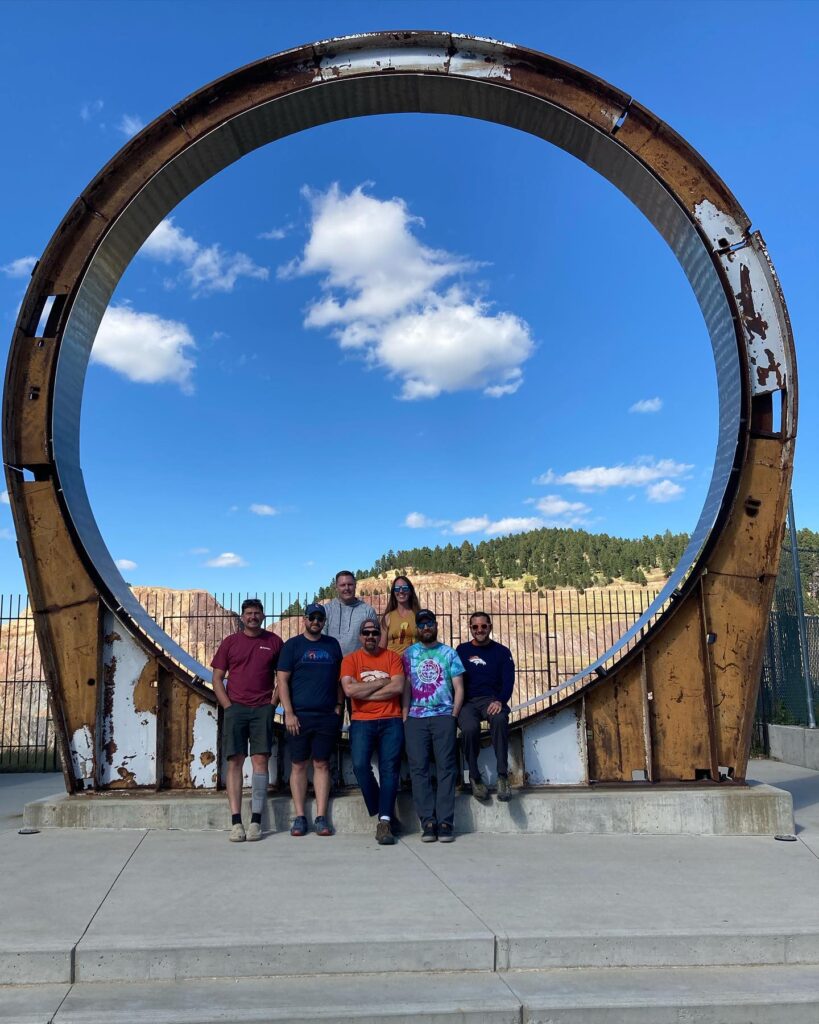
Denver Area Physics Teachers
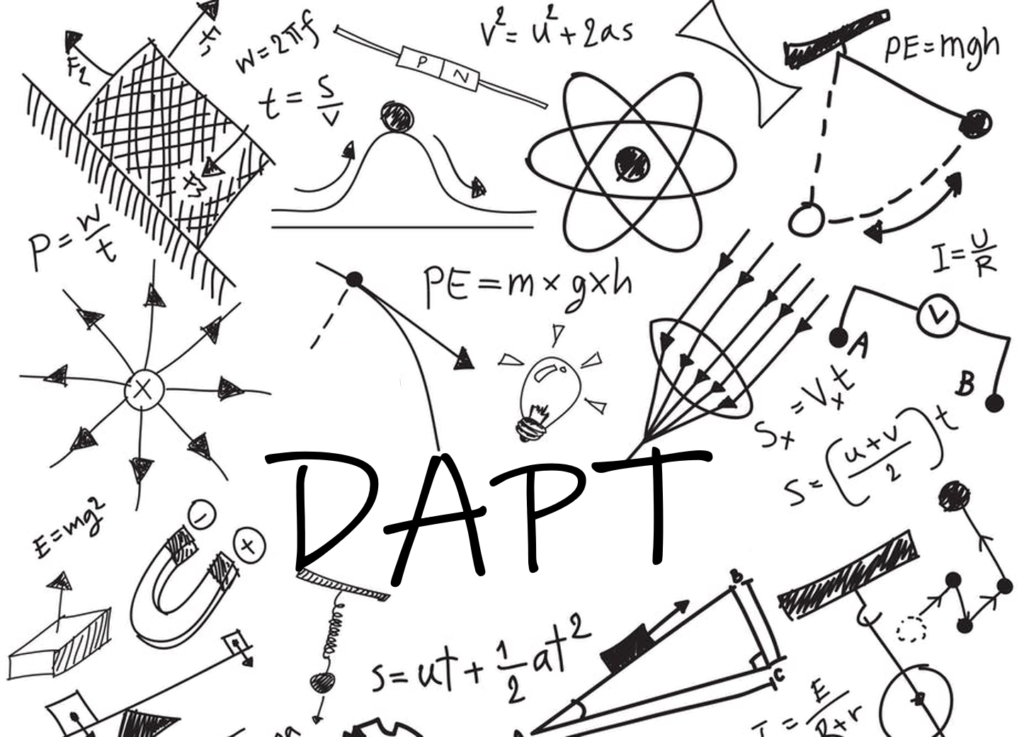
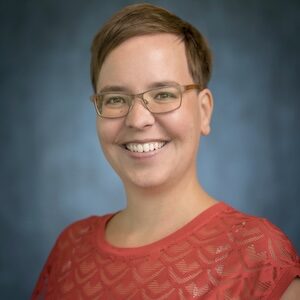
Neutrinos
by Professor Julia Gehrlein, Colorado State University
Neutrinos are the most elusive particles of the Standard Model even though they are extraordinarily abundant in the Universe. In our quest to uncover all mysteries of the neutrino sector we encountered one of the most surprising characteristics of neutrinos: Neutrinos oscillate, i.e. they can change their flavor when traveling over a distance. This implies that neutrinos are massive, in contradiction with the Standard Model of particle physics. In this talk I will review our current knowledge of the neutrino sector and show how near future experiments can probe the neutrino sector further.

Cosmology and High Energy Physics
by Professor Joshua Berger, Colorado State University
The study of the history of the universe has had a deep interplay with high energy physics that has only become deeper in recent years. I will explore the connections between these areas of physics and the challenges they pose for high energy physics, including understanding the nature of dark matter and the excess of matter over anti-matter in the universe.
Iron Physics Workshop
by Cecilia Dauer, Little Shop of Physics
Iron Physics takes after the show Iron Chef, a cooking show based on the premise of creating a masterpiece out of a random assortment of ingredients, but instead of flour or carrots, we're creating masterpieces out of LED finger lights and other strange goodies. This workshop aims to get participants to think outside the box in experimentation and creation, and to show that not all of physics is formulaic.
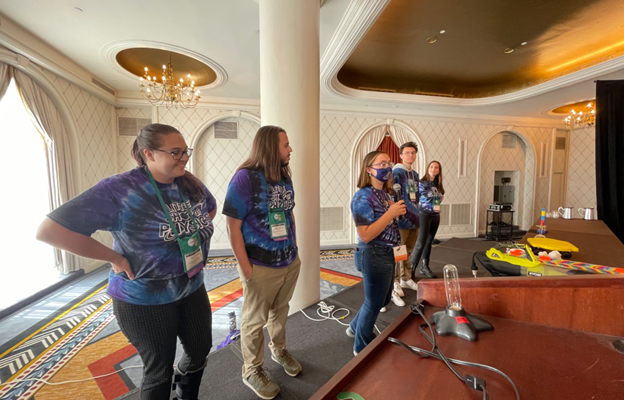
Contributed Sessions
- Building Bridges to Interdisciplinary Collaboration by Nadene Klein and Joe Schneiderwind, Daniel C. Oakes High School/DCSD
- Harry Potter Physics by Carolyn Crapo Grandview High School
Do you have a talk or workshop you'd like to contribute about any topic in physics education? Are you a student that would like to present a poster on any physics-related topic. Please complete this form and we'll be in touch!
Directions and Parking
We will be meeting at Colorado State University's main campus at the Natural Environmental Sciences Building on the 3rd floor.
The address of the building is 1231 Libby Coy Way, Fort Collins, CO 80521
Parking at CSU is mostly free on Saturdays, but please check signage for more informaiton. There are also options to bike or take the Max bus from around Fort Collins.
Registration
Registration is $10 and includes lunch, coffee and snacks; please pay via the PayPal link on the right or contact webmaster@cowyaapt.org to make other arrangements. We will waive the registration fee for students and presenters.
